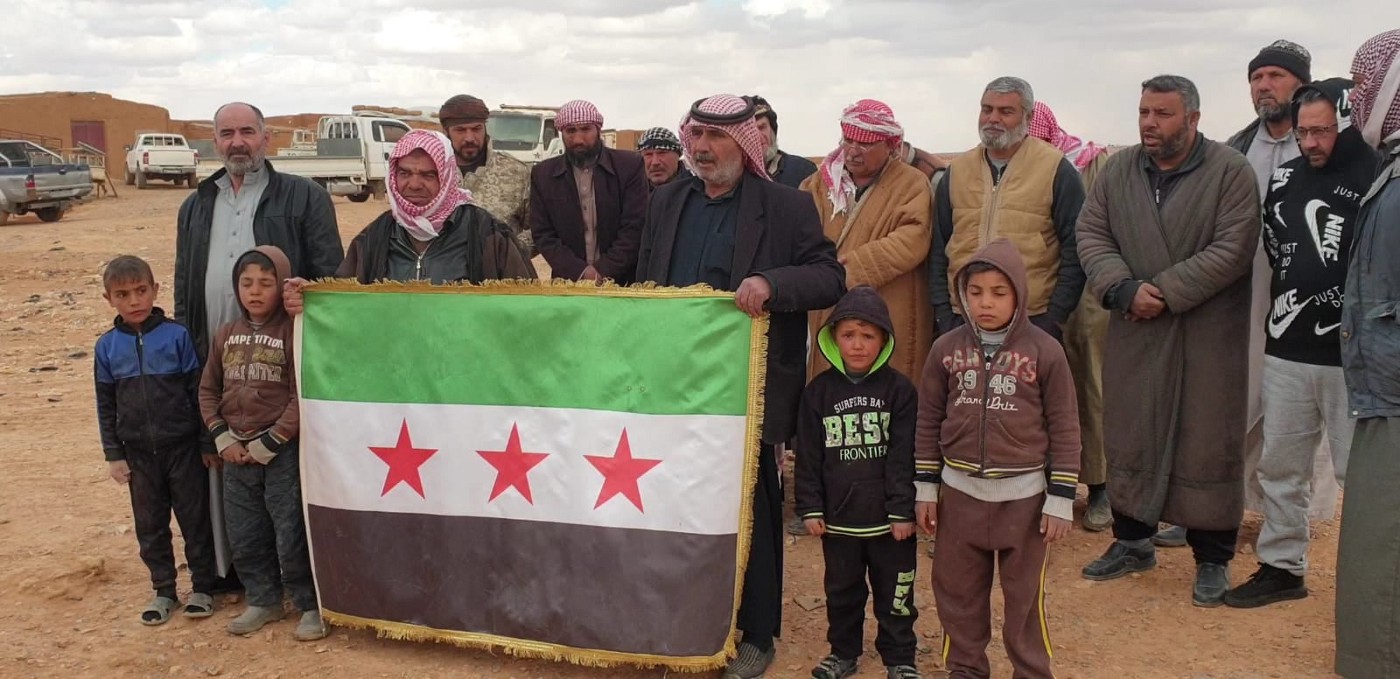The dictionary of meanings mentions in one of the chapters the meaning of evacuation as the departure of the last occupying soldier from the homeland, but its meanings begin to leave the town for fear of leaving.
In the Rukban camp, the residents live in the evacuation in its final sense, when their departure from their cities and towns for fear of killing and arrest became the prevailing concept, after the old meaning, which happened to be remembered today, has shifted to narrower meanings, which we do not share, and we mean all Syrians, one occasion after a difference trenches.
This occasion, like many other occasions, was holidays before the Syrian revolution that lost its old glory in favor of new occasions, happy sometimes like the memory of the Syrian revolution, and sad in most cases, its “calendar” dates days of forced displacement, killing, siege, bombing of homes and public facilities, Hospitals, massacres, arrests, the list goes on.
We do not share these occasions with neighboring cities and towns, nor with people with whom we are united by the memory of one neighborhood, sometimes the same family, and they also differ in the size of wishes and the shape of the upcoming future.
We differ today, from one region to another, even over the prices of vegetables and fruits, the shape of homes, school curricula, de-facto authority, new roads, so how can we agree on daily events that we rejoice or grieve together, after we have lost the partnership of destiny.
Al-Rukban camp is not isolated from its general surroundings, but it is living in a unique Syrian situation. Alone, this time it is living under siege from various directions. Life enters it through holes and with a dropper, it enters what keeps its people continuing to live.
The besieged share the concerns of their comrades at the intersections of the revolution, celebrate its days with them, sit in a sit-in with their friends in various opposition areas, grieve for the siege of Ghouta and its displacement, suffocate with the chemical bombardment on Khan Sheikhoun, Damascus countryside and Aleppo, they despair with the displaced people of Aleppo as they bid farewell to their city, They were angry at wrong practices and violations in northern Syria, and were left alone in their siege.
We do not mean here slander or accusations and blame, but we are not partners in fate in the new history documented by thousands, if not millions of accidents, written by everyone who carried a phone, a camera or an account on a social media, so why not enter the Rukban events in all of our calendars, How many people know about the life of the camp, whose numbers have decreased due to pressure from a hundred thousand to a few thousand, have we asked ourselves how is it possible to live in a besieged desert camp, how children learn, how to live, what they dream of, where one of the Rukbanees can find a cure for a sick wife, How can a woman stand in awe in the morning looking for what would be an ordinary lunch, of potatoes, tomatoes, and green veins to make a salad bowl, and most importantly, can she find bread this morning for your breakfast?
In contrast to the evacuation holiday, there are other holidays that the residents of Rukban add to their agendas, the entry of sacks of flour into the camp, the entry of fodder for the animals that died, a sunny day without a dust storm, an oxygen device for a sick child, the possibility of entering the girl “Yeqin” about which newspapers and activists wrote to allow her To live again, to a country for a surgery that enables her to drink “milk” without suffocating, a doctor enters the camp, a doctor of flesh and blood with headphones, a secondary school for dozens of children who have finished primary school and whose lives have stopped here without ambition to complete their education.
These are occasions that people see as normal, but in Rukban, they are holidays that can be celebrated much more than the evacuation day, especially since a harsh feeling of occupation still accompanies their daily presence.


